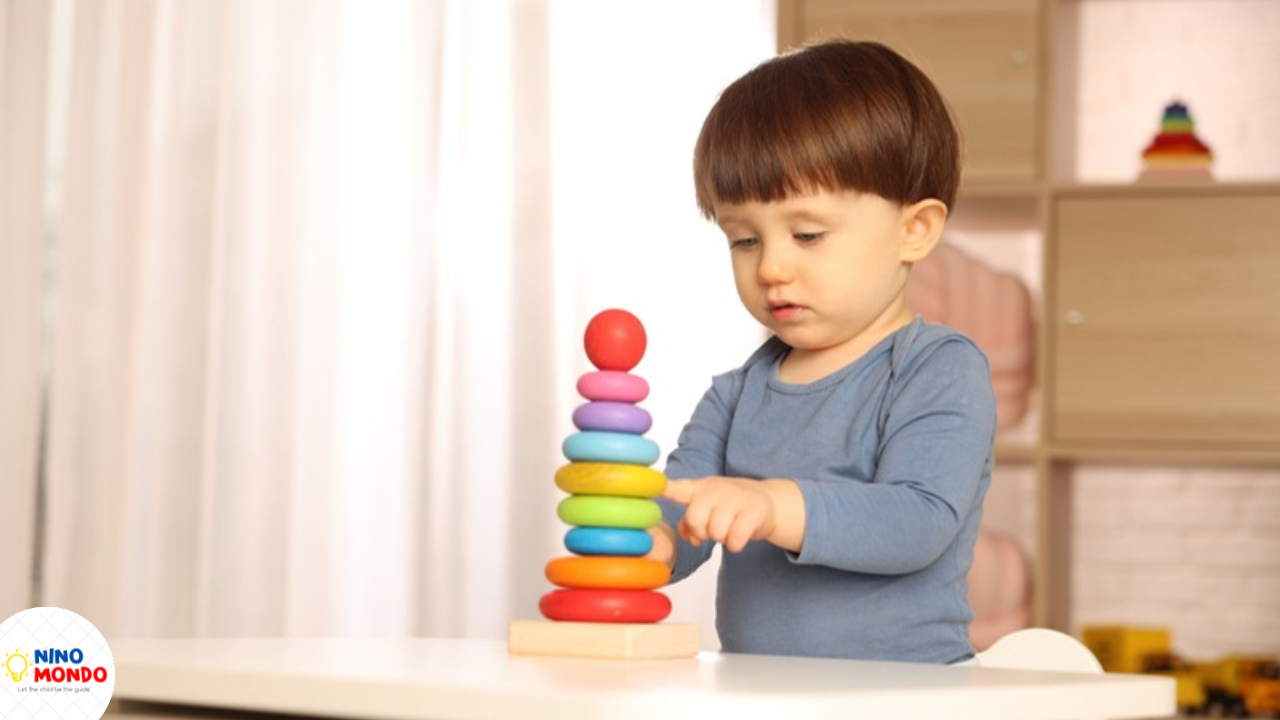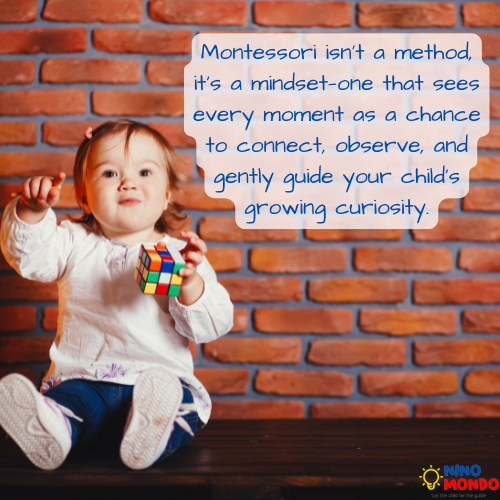4 Easy Montessori Activities for Toddler Development
Oct 18, 2023
Parenting a toddler can be quite an adventure, right? But what if I told you that four simple Montessori activities can turn everyday challenges into delightful moments of growth and laughter?
In this blog, we will explore 4 easy Montessori-inspired activities that will help in child development and make a difference in your toddler's growing up.
Well, it's natural that toddlers become curious about their surroundings and want to explore things independently. The Montessori way of learning is based on creating safe and purposeful playtime for your kids and making a difference in their development in childhood.
These activities are like magic tricks that help your little one build essential skills like problem-solving, creativity, and independence. Plus, they're loads of fun!
Let's dive in!
Child Development Milestones
Before going into the details of Montessori activities for toddlers, let's understand the various child development stages a kid goes through.
Imagine a child's growth like a storybook with different chapters. Each chapter represents a stage in their development. We'll focus on three main chapters: babyhood, toddlerhood, and early childhood.
Babyhood: This is the first chapter of a child's life, typically from birth to around 11 months. Babies in this stage are just starting to explore the world. They learn by using their senses, like touching, seeing, and tasting. They begin to smile, sit up, and maybe even take their first wobbly steps. Montessori activities for babies help them with sensory exploration, building basic motor skills, and developing trust in their parents and surroundings.
Toddlerhood: The next chapter, somewhere around 1 to 3 years of age, is all about toddlers. This is when kids start to become more independent and curious. They learn to talk, walk confidently, and explore everything around them. Montessori activities for toddlers focus on things like developing language-based skills, and fine motor skills, and encouraging problem-solving. They help toddlers become more self-sufficient.
Preschooler: The final chapter in this section is about early childhood, from ages 4 to 6. Kids in this stage are like little sponges, soaking up knowledge. They're learning how to write, count, and express themselves. Montessori activities for early childhood emphasize creativity, self-expression, and cognitive development. They give kids the tools they need to become lifelong learners.
So, in simple terms, it explains what kids are like during these stages and sets the stage for showing how Montessori-inspired activities are tailor-made to support them every step of the way. For now, let's focus on the toddlerhood phase and explore the various Montessori activities that are essential for their development.
Check out our Play Schema Cards, designed to help you understand why your little one plays the way they do and how you can turn every curious moment into meaningful learning.

Montessori Activities for Toddlers
1. Shape Sorter
The shape sorter is a classic Montessori activity when it comes to developing your toddler's visual and cognitive skills. At home, you can take up different shapes of plates or objects and ask them to sort them. This helps them understand objects' shapes and sizes and recognize their differences.
2. Practical Life Activities
It is important for them to have access to different kinds of practical life activities. If you are a parent wondering how, then you can present them with simple and easy tasks at home like picking up things, transferring and pouring from one bowl to another, or even simply washing hands is a good activity.
3. Knowing about Nature
This activity can be done by letting your child climb, dig, and explore the outdoor world, promoting physical development and a connection with nature. Use natural materials like rocks, leaves, or sticks for counting exercises. This hands-on approach makes learning language and numbers fun and tangible by discussing what they see in nature.
4. Sensory development
In the various Montessori activities for toddlers, exploring textures is one of the most effective ways of developing sensory skills, visual perception, and awareness about different dimensions. You can set up a station with different kinds of textures and things around the house, like sandpaper, glue, flour, shaving cream, paperweights, or clothes.
Montessori isn’t a method, it’s a mindset — one that sees every moment as a chance to connect, observe, and gently guide your child’s growing curiosity.
Want to learn more about Montessori for your child's development? Check out our Montessori Mindful Parenting Courses for practical (and easy) tips and tricks.
Frequently Asked Questions
1. What are Montessori activities, and how do they benefit children's development?
Montessori activities are hands-on learning experiences designed to encourage a child's natural curiosity and independence. They promote skills like problem-solving, critical thinking, and creativity. Montessori play ideas are individualized and allow children to learn at their own pace, enhancing their self-confidence and love for learning.
2. Can I incorporate Montessori activities at home?
Yes, you can definitely introduce Montessori philosophy, like creating a prepared environment and allowing freedom of choice, which can be adapted to home settings. There are plenty of resources and ideas available for parents to create a Montessori learning environment at home.
3. How do Montessori activities promote independence in children?
Montessori activities encourage children to make choices, set goals, and complete tasks independently. By allowing children to engage in activities that match their developmental stage, they build confidence and self-sufficiency. Activities like pouring, buttoning, and preparing snacks are examples of tasks that promote independence.
4. Are Montessori activities suitable for children with special needs?
It can be adapted to meet the needs of children with various abilities and learning styles. The emphasis on individualized learning and hands-on experiences can particularly benefit children with special needs. It's essential to work with educators or specialists to tailor activities to a child's specific requirements.
Don't miss a beat!
New moves, motivation, and classes delivered to your inbox.
We hate SPAM. We will never sell your information, for any reason.

